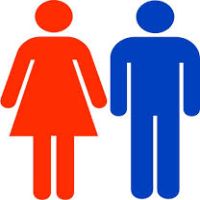As you progress throughout high school, you learn more and more about the type of person you are going to grow up to be.
You will discover new things, hidden talents and hopefully realise what you want to do with your life, or at least, what direction you want it to go in. This is why schools let students choose which subjects they want to take…to an extent.
Yes, as students approach the GCSE years, they are allowed to pick the subjects they want to study and drop the ones they dislike, or at not so strong at. However, this article explores exactly just how much freedom students have over their subject choices.
When can students start picking their own subjects?
As it stands, students have absolutely no say in their subject choice right through to Key Stage 3; that’s up to year 9, where the students are around 14 years old. Instead, students are “forced” to learn subjects they are simply not interested in.
However, it has been argued that if we want to encourage a well-rounded education for our students, then they do need to be taught the fundamentals of subjects such as religious studies.
When it comes to Key Stage 4, the students can then pick the subjects they wish to study for GCSE and drop those subjects they do not like. However, there are indeed restrictions in what they can choose.
Since the introduction of the English Baccalaureate (EBacc), students are further restricted in their subject choices and have certain criteria to fill. Each school already had their specifications, but due to the EBacc, it is more and more difficult for students to have freedom over their subject choices.
What is the EBacc?
The EBacc is a way for schools to measure the performance of their students in examinations of core subjects. It is not a qualification in itself, but it is awarded when students achieve a C grade or higher, in 5 core subject areas.
The EBacc subjects are made up of English, Maths, 1 science, 1 language and history/geography. The idea was that more students would take on traditional subjects and have a more well-rounded education.
Why was it introduced?
The number of non-academic subjects being taken at GCSE had seen a dramatic increase and the government didn’t believe that these qualifications would help prepare students for higher education or landing a job.
By introducing the EBacc, it enabled students to take at least some of the more traditional academic subjects.
What about the Arts?
Since the introduction of the EBacc, subjects such as Drama, Music, Art and DT have seen a significant decline in numbers. Despite art being a crucial subject for distinguished degrees such as architecture, and drama being a loved subject at law schools, these subjects are being abandoned because of the introduction of the EBacc.
It is a shame that the creative types are being deterred from taking a subject that they could excel in because they want to fit into certain criteria.
So, whilst students do have some freedom of their subject choices, they have so many other factors to take into consideration that could impact their choices.
This leads to the question… do you believe students should have the right to fully pick which subjects they choose throughout high school?










